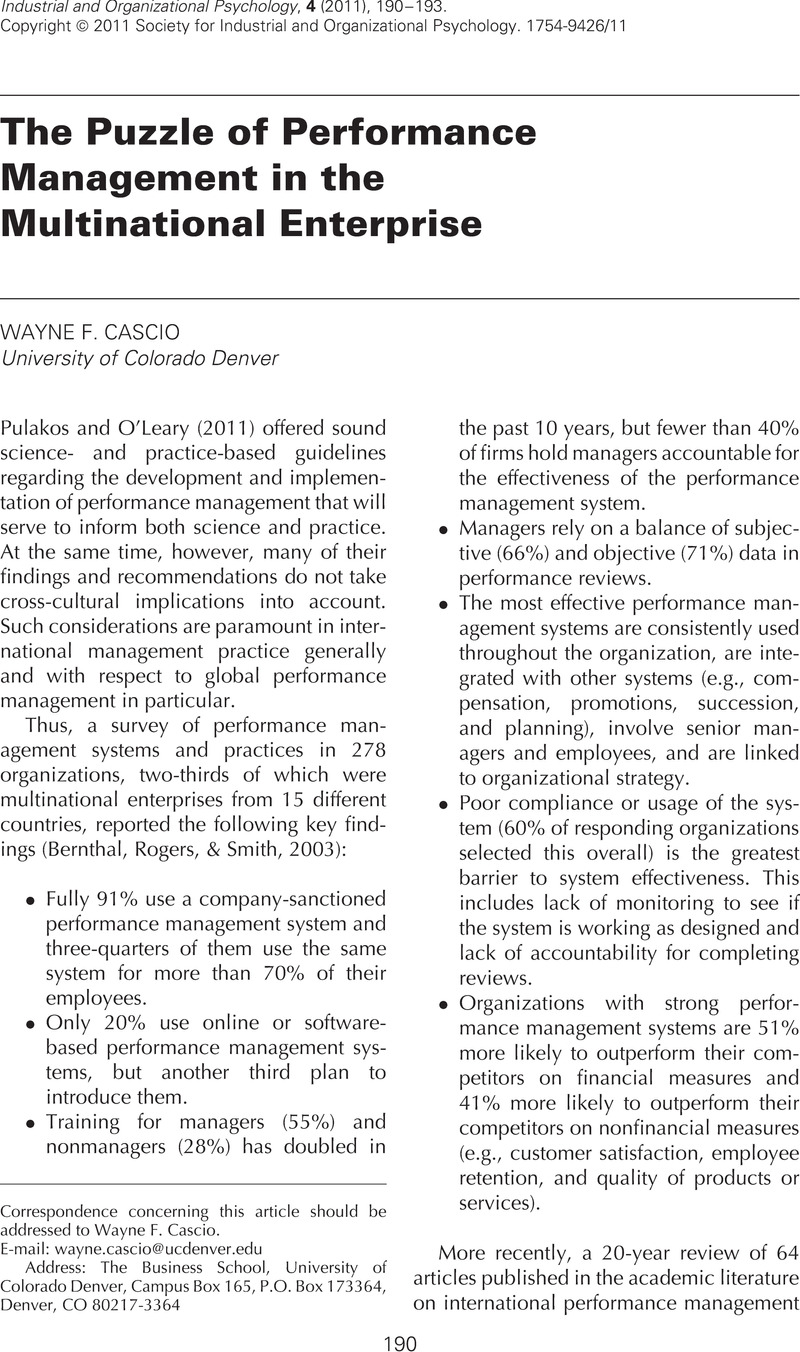Crossref Citations
This article has been cited by the following publications. This list is generated based on data provided by Crossref.
O’Leary, Ryan S.
and
Pulakos, Elaine D.
2011.
Managing Performance Through the Manager–Employee Relationship.
Industrial and Organizational Psychology,
Vol. 4,
Issue. 2,
p.
208.
O’LEARY, RYAN S.
and
PULAKOS, ELAINE D.
2011.
Managing Performance Through the Manager-Employee Relationship.
Industrial and Organizational Psychology,
Vol. 4,
Issue. 2,
p.
208.
Guerra-López, Ingrid
and
Hutchinson, Alisa
2013.
Measurable and Continuous Performance Improvement: The Development of a Performance Measurement, Management, and Improvement System.
Performance Improvement Quarterly,
Vol. 26,
Issue. 2,
p.
159.
Maley, Jane
and
Kramer, Robin
2014.
The influence of global uncertainty on the cross-border performance appraisal.
Personnel Review,
Vol. 43,
Issue. 1,
p.
19.
Levy, Paul E.
Tseng, Steven T.
Rosen, Christopher C.
and
Lueke, Sarah B.
2017.
Research in Personnel and Human Resources Management.
Vol. 35,
Issue. ,
p.
155.





